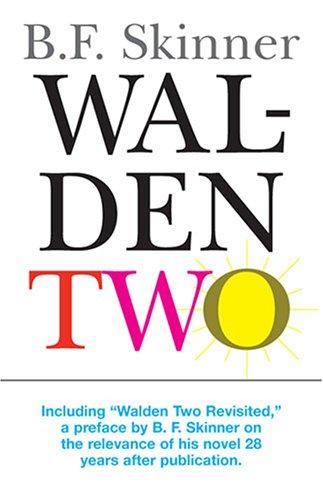Léo Varnet reviewed Walden Two by Burrhus Frederic Skinner
A guided tour through Skinner's dystopian utopia
5 stars
B.F. Skinner’s Walden Two is a must-read for anyone interested in cognitive science, and its implications for societal design. While Skinner’s utopian vision of a society grounded on behavioral engineering and empirical methods may initially strike readers as clearly dystopian (children conditionned in a closed environment since their birth, entrusting political decisions to a managerial elite, etc...), the book’s brilliance lies in its ability to provoke deep reflection. Skinner doesn’t just present a blueprint for an idealized society; he challenges it in many possible ways and interrogates our own assumptions about freedom, power, or education. The narrative unfolds through the eyes of a visiting cognitive scientist and his philosopher companion, who are guided through Walden Two by its anticharismatic founder, Frazier (a structure that mirrors Dante’s journey through Paradise, as noted by Skinner). As Frazier explains the virtues of his behavioral utopia, the visitors, acting as surrogates for the reader, …
B.F. Skinner’s Walden Two is a must-read for anyone interested in cognitive science, and its implications for societal design. While Skinner’s utopian vision of a society grounded on behavioral engineering and empirical methods may initially strike readers as clearly dystopian (children conditionned in a closed environment since their birth, entrusting political decisions to a managerial elite, etc...), the book’s brilliance lies in its ability to provoke deep reflection. Skinner doesn’t just present a blueprint for an idealized society; he challenges it in many possible ways and interrogates our own assumptions about freedom, power, or education. The narrative unfolds through the eyes of a visiting cognitive scientist and his philosopher companion, who are guided through Walden Two by its anticharismatic founder, Frazier (a structure that mirrors Dante’s journey through Paradise, as noted by Skinner). As Frazier explains the virtues of his behavioral utopia, the visitors, acting as surrogates for the reader, raise the very objections that likely spring to mind: "What about free will?" "Isn’t this just despotism disguised as science?"... The beauty of the book is that these critiques are not only anticipated but engaged with thoughtfully, often in ways that forced me to reconsider my initial opinions. Skinner truly managed to push me to seriously reflect on why I disagree with his ideal society. Of course, Walden Two is a product of its time. Published in 1948, some of its ideas may feel outdated in light of modern cognitive science. Yet, in an era where “nudge theory” shapes public policy, Skinner’s vision remains very relevant.





